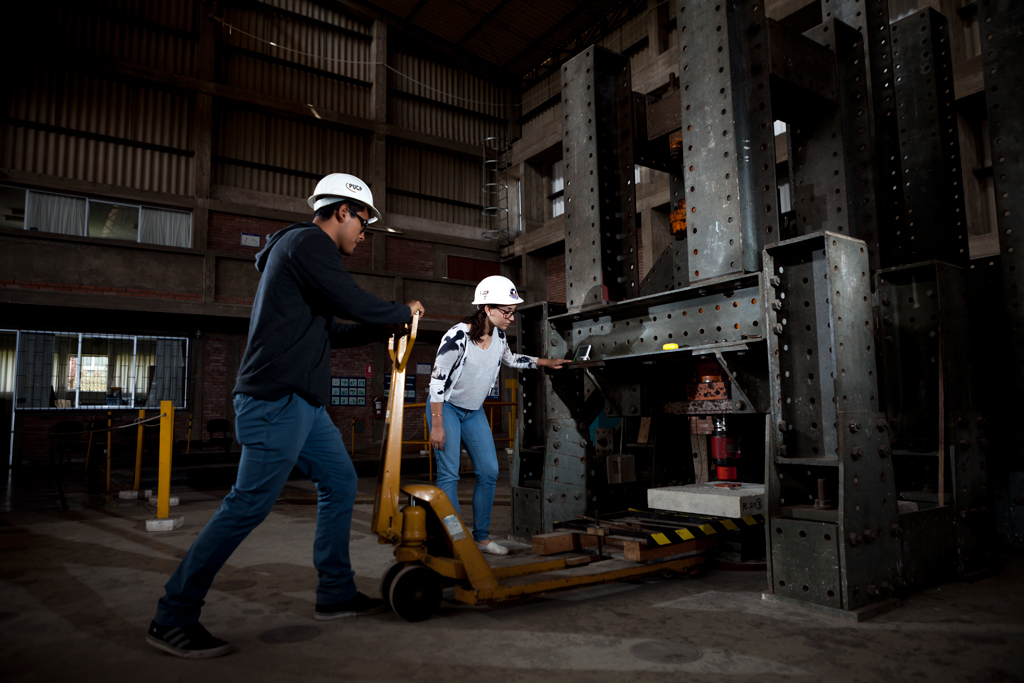
The Peruvian Council of Science, Technology, and Technological Innovation (Concytec) certifies that the course of PUCP Civil Engineering is an excellent research center and the first one of the country in this major because it has experience on the development of research projects of R&D. The opinion says as follows:
“Strengths in Research Groups 1 and 2 were evidenced. They develop Civil Engineering, as associated with topics in Seismic-Resistant Structuring and Risk Management and Materials, Diagnosis and Monitoring Innovation”.
This authorization will enable PUCP to work with enterprises under Law 30309 –Scientific Research, Technological Development and Technological Innovation Promotion–. The purpose of this rule, in force since 2016, is to make universities and enterprises jointly work on research projects, technological development and technological innovation.
In this regard, one of the main benefits of Law 30309 is that enterprises associating with an authorized research center, as in the case of PUCP, may deduct from their income taxes up to 175% of expenses in R&D projects.
To procure an authorization, PUCP showed to have PhDs, researchers and specialists working on research projects in the course of Civil Engineering. Also, it is distinguished by laboratories, equipment, infrastructure and broad publication of scientific papers.
Authorization was made possible thanks to the articulated work of researcher Rafael Aguilar, director of Research of the Civil Engineering section, and also a technical representative of Civil Engineering before Concytec, and the Innovation Office (OIN, by its Spanish initials) of the Research Management Office, under the leadership of Verónica Montoya. “The work began in September of the last year and consisted of consolidating the whole scientific production of our section during the last years and identifying areas with more strengths for research and third-party projection”, as detailed by Aguilar. Moreover, Verónica Montoya adds that “the process was intense because information about all researchers working on Civil Engineering had to be collected. Everybody has to be registered with the DINA (National Director’s Office of Researchers and Innovators) and REGINA (National Registry of Science and Technology Researchers)”.
Following the authorization “the University and each professor of the Center have now the challenge to approach to an industry with many necessities because a little innovation was produced in the country”, as explained by Rafael Aguilar. On the other side, from OIN “the work now is to look for companies interested in working on research, technological development and technological innovation projects with the university”, as stated by Verónica Montoya. (Source: Research Vice-president’s Office).